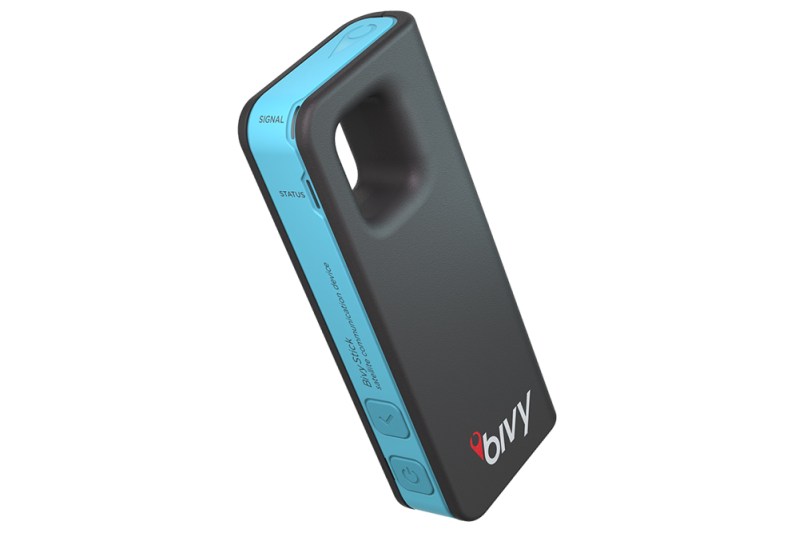
International travel is all but impossible for Americans right now. That’s why more and more of us are instead road-tripping, camping, and exploring the great outdoors. While going off-grid is good for the soul, though, it can be dangerous. Cell phones are essential for emergency purposes, but they don’t always work. That’s why, if you’re planning to get far, far off the beaten path, you need a proper satellite messenger.
The all-new Stick from Bivy promises to turn any smartphone into a legit, go-anywhere satellite communication device. When paired with Bivy’s dedicated smartphone app, the Stick offers updated weather reports, two-way messaging to phone numbers and email addresses, single-location sharing, and real-time tracking. With “check-ins,” users can send predefined messages to family and friends upon reaching a specific location. All of these features are available anywhere on Earth with a view of the sky.
The Stick is designed to work best when paired with a smartphone. But, Bivy wisely integrated buttons for the most essential features into the design. Even without a phone, the dedicated check-in button allows users to quickly update loved ones, while a similar SOS button summons rescue services in an emergency. The entire package measures roughly 4.5 inches by 1.8 inches and weighs less than 100 grams — half of most traditional smartphones. It’s all wrapped in an IP67-rated case that’s weatherproof, ultra-durable, and designed to withstand the harshest conditions. It’s also compatible with standard GoPro mounts so it can be mounted on a bike, a vehicle windshield, or a backpack.
What really sets the Bivy Stick apart from its competitors, however, is a more flexible pricing structure. Similar products require activation fees and monthly charges that typically add up to more than USD $100 per year. Bivy instead opts for a credit-based system. The Basic package is just $17.99 for 20 credits, while the top-tier Unlimited package is just $49.99. Once purchased, credits are valid for 30 days. This means intermittent explorers only pay when they’re planning to actually get outside and use the system.
Two-way satellite messengers and personal locator beacons are nothing new, of course. They have, however, gotten considerably smaller, more portable, and more reliable over the years. Garmin’s inReach and inReach Mini — arguably the niche’s gold standard — are practically required kit for hardcore backcountry explorers. In recent years, other competitors like Spot have launched similar alternatives. Bivy’s own Bivystick Orange is another such alternative, although it never gained the mainstream adoption of its competition.
The Bivy Stick is available for pre-order directly through Bivy for USD $349. First deliveries are expected sometime in August.
For a similar alternative that’s available right now, check out the Somewear Global Hotspot.



